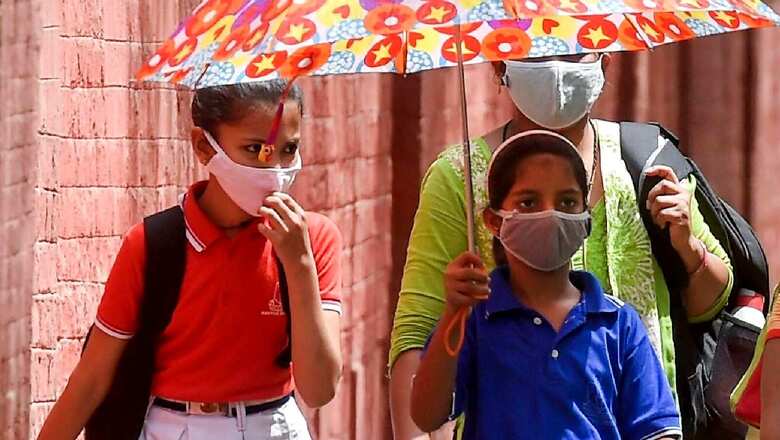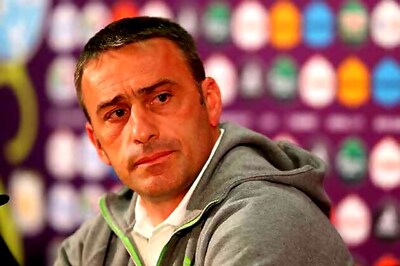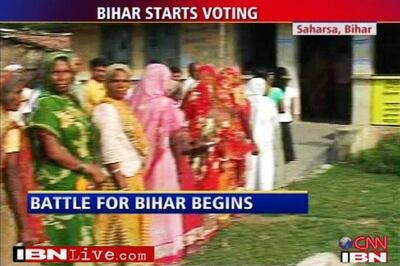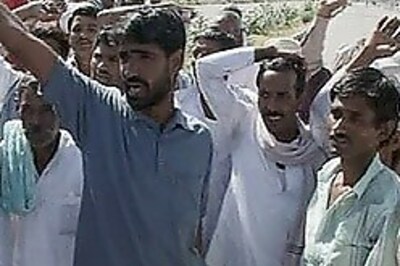
views
The annual winter pollution crisis triggering the indefinite closure of schools has affected school education, which is still recovering from the blows of the two-year-long pandemic. Educators believe, it is not just a loss of learning, but a continuing challenge for students, in particular, younger children to connect with the outside world.
Delhi’s air quality index plummeted to 450 (higher end of severe category) last Thursday (November 3) following which Delhi chief minister Arvind Kejriwal had on Friday announced the closure of schools for primary classes (up to class 5) till November 8. Neighbouring Noida, where the AQI had slipped to 469, the administration shut down schools for classes 1-8 till November 8 while classes are being held online. Air quality has improved now to ‘very poor’ zone, it can slip back to severe once stable weather conditions set in.
While the air pollution crisis has just begun in Delhi, last year schools were closed for primary classes for 29 days on account of air pollution during November-December.
Educators suggest institutionalizing such breaks and incorporating them into the academic calendar to avoid the looming uncertainty and learning loss.
Former Central Board of Secondary Education (CBSE) chairperson Ashok Ganguly said that it is becoming a challenge in education how to handle the uncertainty principle. “This type of frequent closure of schools is creating anxiety and definitely puts a break in the learning cycle. Children are confused and that also put them in a learning loss,” he said.
He further said that it also breaks the rhythm of a learning process. As it is becoming recurring these days, will it not be appropriate to take proactive measures in this regard and take it into account in deciding the academic calendar? Because class 1 now is an important stage of foundational learning and as per the New Education Policy (NEP) 2020 , any loss at this stage may continue in the latter stages of schooling process.
“The most important thing we need to decide is the learning outcome at different levels of foundational stages and how many days we need to achieve that outcome. Once that is decided, we can accordingly decide the framework of the academic calendar,” he said.
Let there be such a break institutionalized and accordingly reduce the winter and summer vacations. It will then end the reactive measures or feedback that is often associated with such decisions. In short, there should not be any adhocism or populism while taking such decisions,said Ganguly.
Even as health is a concern, most parents don’t want schools to be closed, as children still go outdoors and get exposed to the bad air.
“Closing down classes randomly affects continuity in teaching-learning. It is more important for younger children to keep connected to the school environment than those in the secondary or higher wings. Senior class students can work on their own, but for primary classes everyday sport and guidance are required. After the long pandemic-induced gap, Grade-1 students are coming to school for the first time. Policy-makers need to chart out strategies to deal with this annual air emergency situation than just closing down schools,” said Jyoti Arora, principal, Mount Abu school and governing body member of the CBSE.
The ministry of education had last week come out with its UDISE+ report that highlighted that children in primary classes were the most-affected due to the long pandemic-induced loss in school education when schools remained closed for long hauls and not many children could join or keep up with online classes.
However, A K Jha, principal of a Delhi government school in Rohini said that health concerns are important in the case of younger children, whose immune system is not so developed to handle exposure to such bad air. “Till the time there is a strategy in place and if the breaks, like the one announced this time are small, it will not cause harm in learning. While coming to schools, children get exposed during commute on the way and then back home. If the break gets longer, then we will move to online mode of teaching,” said Jha.
Read all the Latest Education News here



















Comments
0 comment